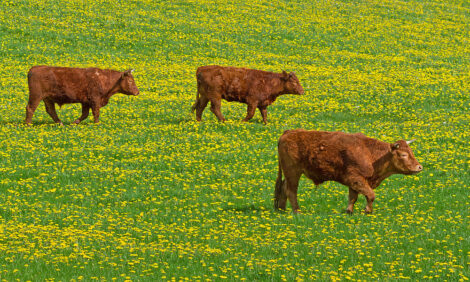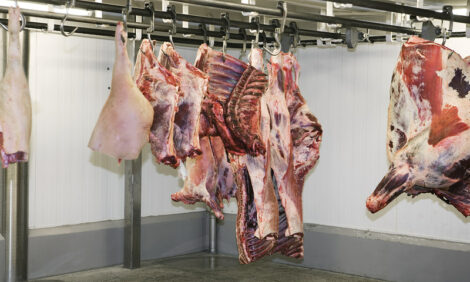



Indonesia Permit Confusion and Drought Blights Ozzie Beef Giant
AUSTRALIA – Live export uncertainty and continued drought conditions have been blamed by the Australian Agricultural Company for a half year net loss of A$31.6 million.Persistent heat and below average rainfall across Queensland and the Northern Territory has hit Australia’s largest beef producer which reported lower cattle sales and a 67 per cent fall in gross margin.
In its half year financial review, the AACo said statistics were pressured by average live weight prices falling 12 per cent, contributing to a $20.4 million drop in cattle sales revenue.
The review also blamed depressed cattle prices on communication over the live cattle trade permits to Indonesia hampering sales.
Indonesian exports have concerned cattlemen since suspension of live cattle exports under the previous Federal Government in June 2011 which, combined with drought pressure, led to industry-wide destocking, explained an AACo spokesperson.
“The dry conditions have brought about destocking across the cattle industry forcing prices lower than prior years. Prices achieved to 30 September 2013 averaged $731 per head.”
The spokesperson added: “Cattle purchases have also been reduced to 14,453 head for the six months to 30 September 2013 with the bulk of the cattle purchased to support feedlot operations.”
However, weather aside, the AACo stressed Indonesian exports looked more upbeat and suggested requirements of feeder cattle could lift, also highlighting new markets in Vietnam as a driver of higher prices.
Acting Chief Executive Officer Craig White said: “Recent diplomatic moves by the new Federal Government are also promising for an improvement in live export trading conditions with Indonesia.”
Elsewhere, Mr White, reported gross margin improvement in the Branded beef divisions, up 323 per cent in value over the six month period.
“The success of the Branded Beef business continues to validate AACo’s strategy of moving from a pure pastoral company to a vertically integrated producer, processor and marketer,” said Mr White.
“Our Branded Beef division was driven by a decision to concentrate on higher-value customers and improved yields, initiated by a reinvigorated management team.”
Further positive news came from a cash flow improvement and reports of a new processing plant, expected to be ready next year.
“The company’s Darwin Beef Processing Facility will be crucial to both enhancing the group’s profit as well as reducing the volatility of the group’s earnings profile,” added Mr White.
He concluded: “While external factors such as the drought and the corresponding low cattle prices have affected the result for this half, the company has been able to effectively manage the things it can control.
“This is demonstrated by a $4.5 million improvement in operating cashflow for the half compared to the prior corresponding period, despite a volatile environment with significantly increased feed and transport costs.”
Michael Priestley
News Team - Editor
Mainly production and market stories on ruminants sector. Works closely with sustainability consultants at FAI Farms



